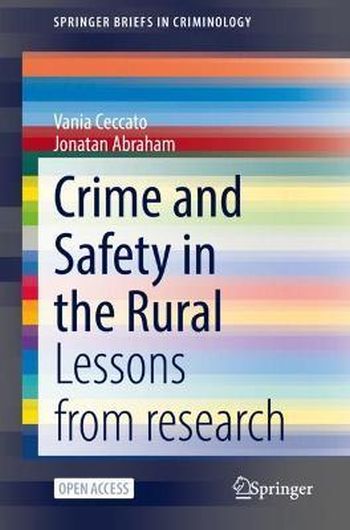
Criminology has until recently neglected the nature and levels of crime outside the urban realm. This is not a surprise as crime tends to concentrate in urban areas and the police directs resources where the problems are. Yet, there are many reasons why scholars, decision-makers and society as a whole should care about crime and safety in rural areas. First, low crime rates in rural areas are mistakenly taken as a sign that crime is not a problem for those living there (Yarwood, 2001). Second, we argue that crime is not simply an urban phenomenon; it embodies the very same characteristics of the environment it is embedded, in certain cases, crime commission is only possible at those situational rural contexts (e.g., Stassen and Ceccato, 2020). Finally, crime in rural areas are in constant transformation given local and global influences, imposing challenges for policing and not least, for the long term sustainability of rural areas.
This book highlights 20 reasons why crime and safety in rural areas is a topic of relevance. We attempt to untangle currently simplistic views of the rural by discussing a number of facets of the countryside as both safe and criminogenic, and more importantly, a hybrid place worth to be examined in its own right.
Then, the book critically reviews a rich body of English-language literature in rural criminology that extends over more than five decades-a scholarship that has engaged researchers and practitioners in all continents. The books finishes with a discussion of the emergent research questions of the field, and offers suggestions for further reading.